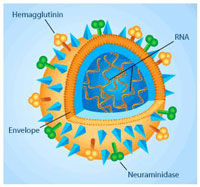Gerhard Schratt, PhD and Professor Albert Sickmann receive the Analytica Research Prize
"There's nothing like starting young" - so goes the old German proverb. The truth of this saying is demonstrated by the two up-and-coming German scientists Dr. Gerhard Schratt (35) and Prof. Albert Sickmann (34). They will receive the 50,000 euro Analytica Research Prize for 2008. The two researchers will share the award. They are being honored for their analytical studies in the field of neurobiology and functional protein research.
For the first time, the German Society for Biochemistry and Molecular Biology and Roche awarded the Analytica Research Prize. In Munich at Analytica, the president of the Society for Biochemistry and Molecular Biology, Prof. Alfred Wittinghofer, presented the prize endowed by Roche.
Dr. Gerhard Schratt graduated summa cum laude from the University of Tuebingen and currently conducts basic research at the Interdisciplinary Center for Neurosciences of the University of Heidelberg. There, the biochemist investigates the molecular mechanisms that are important for plasticity of synapses and thus for learning and memory processes. He concentrates on a certain group of miRNAs (micro-ribonucleic acids) that ultimately influence the structure and function of synapses. This information, in turn, can be used to derive novel therapeutic approaches for diseases of the nervous system.
When he was only 17 years old, Prof. Albert Sickmann very successfully participated in a state-wide natural sciences research competition in North Rhine-Westphalia. This probably laid the groundwork for his research career, because only ten years later, he graduated with distinction from the Ruhr University of Bochum as a biochemist. Appointed professor in 2002, he is now Director of the Protein Mass Spectrometry department at the Rudolf-Virchow Center for Experimental Biochemistry of the University of Wuerzburg. The network of protein molecules is his specialty, because his research results serve as a basis for generating models to better understand various cellular processes. In particular, platelets have occupied his undivided attention. If there are disorders in their network components, heart attack or heavy blood losses can occur. His vision is the modeling of an "e-Platelet," i.e., a virtual platelet, which would contribute toward a better understanding of these cells that are responsible for blood coagulation.
Other news from the department people
Most read news
More news from our other portals
See the theme worlds for related content
Topic World Mass Spectrometry
Mass spectrometry enables us to detect and identify molecules and reveal their structure. Whether in chemistry, biochemistry or forensics - mass spectrometry opens up unexpected insights into the composition of our world. Immerse yourself in the fascinating world of mass spectrometry!

Topic World Mass Spectrometry
Mass spectrometry enables us to detect and identify molecules and reveal their structure. Whether in chemistry, biochemistry or forensics - mass spectrometry opens up unexpected insights into the composition of our world. Immerse yourself in the fascinating world of mass spectrometry!





























































